Category: Features
-
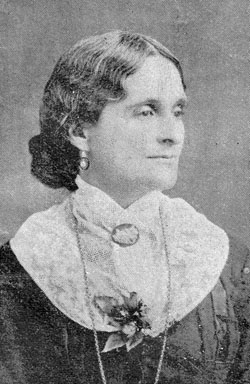
Literary Lorenzo Snow #12: The Christmas Tithing
It is nice to see our duties described in a way that makes clear their role in our communities. Take tithing, for example. Lorenzo Snow’s teachings in the current Priesthood/Relief Society manual (lesson 12) clearly cover our obligation, outlining how much we must provide and how tithing is a commandment of the Lord. But the…
-
Literary DCGD #23: The Transformation
I occasionally see from both inside and outside of the Church those who suggest that Mormons are somehow against education. While there certainly have been some anti-intellectual ideas floating around the Church almost from the beginning, the general tenor of Church teachings have always been supportive of education, and D&C Gospel Doctrine lesson #23 is…
-
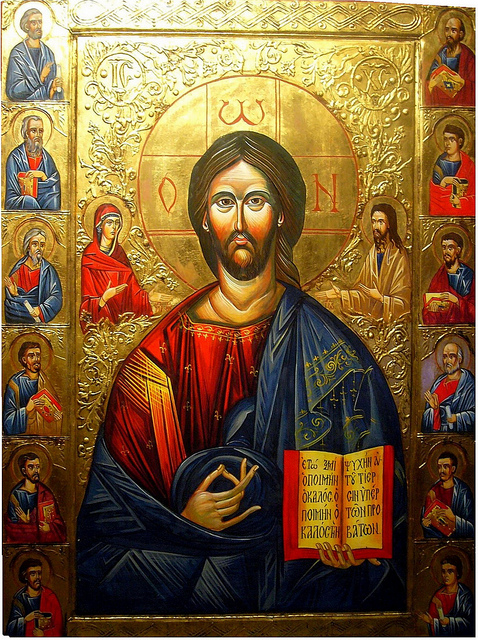
Advice on Teaching – Preliminaries
I’ve recently been involved in teacher training in my ward and have prepared some materials that I’m going to share across a few posts.
-
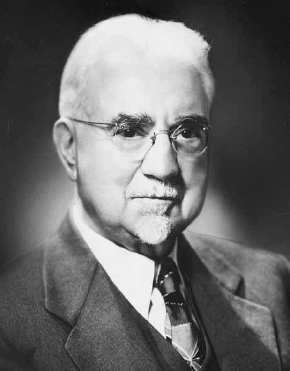
Literary Lorenzo Snow #11: Father! Lead Me Out of Darkness
One of the most difficult concepts for many (perhaps even most) Church members in U.S. culture today is the idea that we should let the Lord direct our lives. Part of the difficulty lies in our desires, which may be righteous, but also may not be what the Lord would have us do. How often…
-
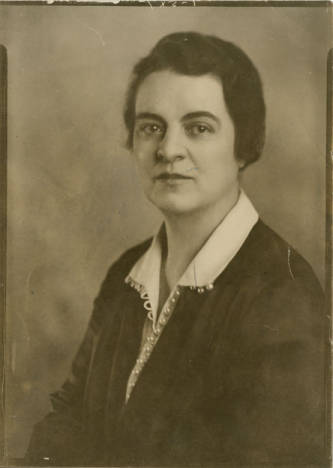
Literary DCGD #22: Because We’re Mormons
The word of wisdom is strongly connected with who we are as Mormons—it has become as much an identifier as pork is for Jews and for Muslims. We emphasize the importance of this teaching in lessons like the current Gospel Doctrine lesson (#22), and we teach it to kids almost from birth. But while section…
-
Literary DCGD #21: Ere long the vail will rend in twain
When we think of the second coming of Christ and the things that will happen in the last days, frequently our focus is on the prophesied destruction and the “signs of the times.” But as the focus of D&C Gospel Doctrine lesson 21 shows, we need not put our focus there, but instead we can…
-

Review: The Fading Flower & Swallow the Sun
Mahonri Stewart recently released two of his plays–The Fading Flower and Swallow the Sun–together in a single volume. I found both of them to be so compelling, that I’m truly sad that no productions have been put on or are scheduled within 1,000 miles of where I live on the East Coast. More than just…
-
Literary DCGD #20: From The Arcana of the Infinite
It seems like a few verses in the D&C are all we know about the life after this. Lesson 20 of the Gospel Doctrine manual covers D&C 76, 131, 137, and part of 132, and in these scriptures we discover a structure for the hereafter, a segregation of the children of God into groups based…
-
Literary Lorenzo Snow #10: The Temple of God at Nauvoo
We tend to talk about the benefits of the temple more than the obligations. In the temple we may gain knowledge, revelation, be sealed to our families, and give our relatives who have passed on the opportunity to accept necessary earthly ordinances—all important elements described in the Lorenzo Snow manual lesson 10. But these benefits…
-
Literary DCGD #19: Spirit Memories
How thin is the veil? Might we remember bits of our experience there? Could a melody we heard there be familiar to us here? (assuming we even heard melodies there). The idea of the pre-existence and of the other elements of the plan of salvation, discussed in D&C Gospel Doctrine lesson 19, are a source…
-

The Gold Coin; or, how we should teach our youth about their worth
Object Lesson: The Gold Coin Supplies: Either a $1 coin (such as the recently issued gold coin) or a half-dollar coin. A small bag of dirt. A few miscellaneous objects, such as a pen or paper clip. Lesson: The teacher holds up the coin and asks the class, “What is this?” (Wait for the class…
-
Literary Lorenzo Snow #9: Memento
The sacred and eternal nature of families is regularly taught and believed among Mormons today. But it wasn’t seen as quite as obvious to Church members in the middle of the 19th century. The teaching that our family relationships extend past this life and are modeled on the family relationship we had before this life…
-
Literary DCGD #18: The Temple of God
We are a temple-building people. Today we are more removed from the process than ever. Where Mormons once donated money, materials, time and effort to building temples in Kirtland, Nauvoo, St. George, Salt Lake and elsewhere, we participate less and less in the process, first no longer providing materials, then over time less and less…
-
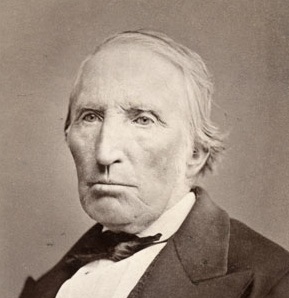
Literary DCGD #17: A Satire on Avarice
Its hard to find poetry about tithing! I suppose since tithing wasn’t emphasized as much by the Church before the beginning of the 20th century, Mormon poets didn’t focus on the concept. Or, it might simply be that the subject matter doesn’t work well in poetry; certainly the word “tithing” isn’t very poetic, leaving me…
-
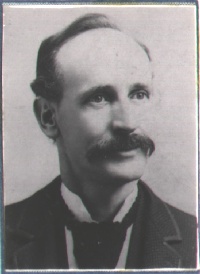
Literary DCGD #16: Sabbath School Opening Hymn
When we discuss the Sabbath in lessons, we can either focus on the things that we should not do to keep the day holy or we can focus on the things we can and should do. The 16th Gospel Doctrine lesson for the Doctrine and Covenants focuses more on the latter than on the former,…
-
Literary Lorenzo Snow #8: The Epitaph
Character not only matters, Lorenzo Snow seems to indicate in the material included in lesson 8 of the Lorenzo Snow manual, it is how we are judged, how the Lord “knows our heart.” This prioritizes, of course, character development, which is, in the end, the focus of this lesson. While I don’t have a Mormon…
-
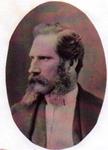
Literary DCGD #15: A Prayer
I had a hard time finding a poem that fits with this week’s Gospel Doctrine lesson on spiritual gifts. There just aren’t many that even mention spiritual gifts, and most that do seem to be predominantly about another subject. But I was finally able to find one that focuses on the gift of healing, one…
-
Sunday Afternoon Session
President Uchtdorf is conducting this final session of Conference, with music by the Tabernacle Choir. Invocation by another female, Sister Stephens — they seem to be everywhere this Conference! Benediction by a male Seventy. Direct quotes of a speaker are in quotation marks, otherwise the text is my summary of their remarks.
-
Sunday Morning Session
President Henry B. Eyring is conducting this session of General Conference. Choir — Go Forth in Faith Conducting — President Henry B. Eyring Choir — Let Zion in Her Beauty Rise Invocation — Elder Steven E. Snow President Dieter F. Uchtdorf — “The Hope of God’s Light” It is part of our condition as mortal…
-
Priesthood Session
President Uchtdorf conducted the priesthood session, which included a number of strong and inspiring talks. Choir — Arise, Oh God, and Shine Invocation — Elder Ronald W. Rasband Choir — Nearer My God to Me Elder Robert D. Hales — “Stand Strong in Holy Places” Brethren, if we are faithful in the priesthood, this armor…
-
Saturday Afternoon Session
President Eyring conducted the afternoon session. President Uchtdorf read a long list of sustainings and releases, notably releasing President Dalton of the Young Women and calling a new President (Bonnie Lee Green Oscarson) and counselors. The annual audit report and statistical report were read: there are now 3005 stakes and 347 missions. In what follows,…
-
Saturday Morning Session
President Uchtdorf conducted this opening session. Opening prayer by a (male) Seventy and music by the Mormon Tabernacle Choir. Direct quotations of a speaker (based on my real-time listening) are given in quotation marks; other text represents my own summary of their remarks.
-
Literary Lorenzo Snow #7: Since Mother Went Away
In Mormonism we talk a lot about concepts like “enduring to the end” and “faithfulness in times of trial” (the subject of the current lesson in the Lorenzo Snow manual). We teach that trials are a necessary part of life, burdens that we need to pass through in order to learn the lessons of life…
-
Literary DCGD #14: The Female Relief Society of Nauvoo
What does it mean to consecrate? What are the kinds of things we must do, the attitudes and priorities we must have when we consecrate all that we have and that we are to the Lord? Doctrine and Covenants Gospel Doctrine lesson 14 explores the Law of Consecration, focusing on these attitudes and priorities and…
-
Literary DCGD #13: Inspired Writings
Lesson 13 of this year’s Gospel Doctrine manual reviews some of the most important contributions of Joseph Smith—the scriptures he brought forth. Through Joseph Smith we have not only the Book of Mormon, but also the Doctrine and Covenants, Pearl of Great Price and the inspired version of the Bible. In addition, Joseph Smith provided…
-
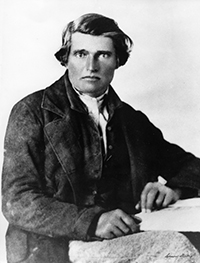
Literary DCGD #12: The Gathering of Zion
One of the most modified Mormon doctrines is the doctrine of the gathering—the idea that Church members should move to a central gathering spot to build up Zion in this dispensation. D&C lesson 12 teaches about this doctrine, the subject of many of the sections in the Doctrine and Covenants. Under this doctrine, Mormons have…
-
Literary DCGD #11: Bold Pilgrim
One of the early focuses of the Doctrine and Covenants is missionary work. Repeatedly the Lord advises the Church in revelation that “the field is white, already to harvest,” and encourages missionaries to labor with “all your heart, might, mind and strength.” Church members are urged to prepare and to “open your mouths” to warn…
-
Literary Lorenzo Snow #6: Saturday Evening Thoughts
Chapter 6 of the Lorenzo Snow manual discusses President Snow’s teachings about perfection—his encouragement of gradual improvement, diligence and patience and the role of repentance in obtaining perfection. One of the concepts that stands out to me is the requirement for patience and endurance in reaching perfection. These themes can also be found in his…
-
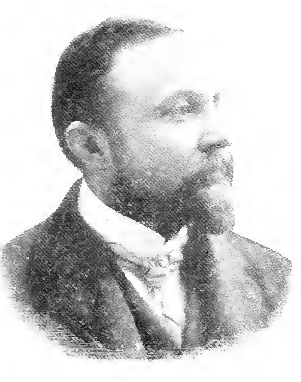
Literary Lorenzo Snow #5: Pre-Existence
Lorenzo Snow’s teachings on man’s destiny and on the nature of God have often been met with both criticism from non-Mormons and wonder from members. His couplet about the past of God and the future of man (mentioned in the lesson), encapsulates an important part of Mormon theology, something that has been even encapsulated in…
-
Literary DCGD #10: Friendship
Lesson 10 of the Gospel Doctrine manual for the Doctrine and Covenants is one of those lessons that is a bit hard to characterize. It covers D&C 25, addressing subjects like “husbands and wives should support and comfort each other,” “meekness and pride,” and “rejoice and be of good cheer.” I found it hard to…
